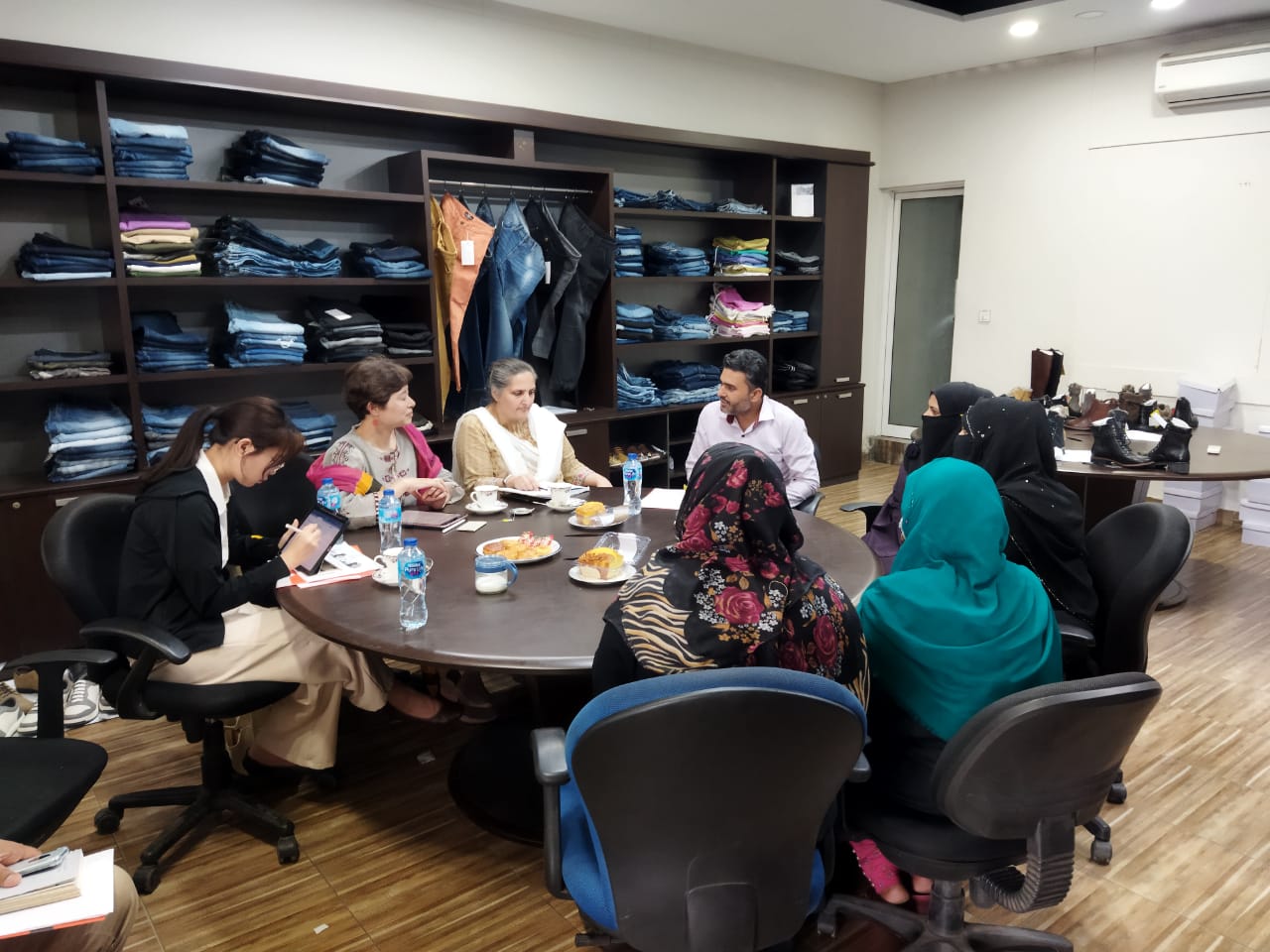
Business trip report: Training Need Assessment (TNA) preliminary survey for JICA Pakistan’s Employable Capacity Development for Women project in Punjab2023.06.20 Pimmada Charoensilp South Asia
SKY project is designated to conduct a skills assessment among stakeholders of clothing industries for JICA Pakistan’s employable capacity development for women project in Punjab. Two SKY project members visited Pakistan to complete the Training Need Assessment (TNA) ‘s preliminary survey from May 28 to June 3, 2023. The survey took place in the central and outskirts of Lahore city. The objective of this survey is to comprehensively understand the nature and needs of and perceptions toward women’s career choices among stakeholders, including female workers themselves. Besides, it aims for the SKY project members to better understand the social structure and values in the local context. Findings from the survey are used to customize our standardized skills assessment module made applicable to the diverse contexts in developing countries according to the specific needs of target participants in the Lahore context.
To know the perspectives of training providers, we conducted a group discussion interview with high-level administrators and training designers of PVTC (Punjab Vocational Training Council) and PTEVTA (Punjab-Technical Education and Vocational Training Authority). We also enjoyed the opportunities of discussing with TVET instructors and vocational training institutes’ principals and graduate placement officers. Besides the interview, we visited a PVTC training institute to observe and talk to students from stitching and dress-making courses. We also needed to familiarize ourselves with the perspectives of the employers of female workers, which was made possible by visiting two large companies and two SMEs. During the factory visits, the SKY project members interviewed SME owners, human resource managers, general managers, and female employees. In addition to the individual clothing companies, we visited the associations composed of such companies, such as the Pakistan Readymade Garments Manufacturer and Exportation Association and Pakistan Hosiery Manufacturer Association. Also, given that a large part of women in this industry in Lahore are either self-employed or home-based sub-contractors for factory units, we interviewed ten female home-based workers along with a discussion with staff members of Homenet Pakistan, a non-profit organization working for female home-based workers and micro-entrepreneurs.
From the preliminary observations, we found that cultural issues play a critical role in women’s employment in the clothing industry; therefore, the SKY project is presently adding question items about cultural and social values to its standardized assessment module to meet the peculiar Punjab context. Based on the situation analysis during this trip in June, the actual TNA will be implemented in August. It involves female workers in formal factories – both large ones and SMEs – and those working at home, factory managers in charge of human resources and production, and TVET instructors. Two SKY project staffs will travel to Punjab for the assessment preparation, including enumerator training and implementation assistance.


